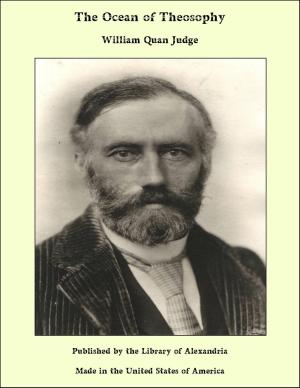| Author: | George MacDonald | ISBN: | 9781465550750 |
| Publisher: | Library of Alexandria | Publication: | March 8, 2015 |
| Imprint: | Language: | English |
| Author: | George MacDonald |
| ISBN: | 9781465550750 |
| Publisher: | Library of Alexandria |
| Publication: | March 8, 2015 |
| Imprint: | |
| Language: | English |
Hector Macintosh was a young man about five-and-twenty, who, with the proclivities of the Celt, inherited also some of the consequent disabilities, as well as some that were accidental. Among the rest was a strong tendency to regard only the ideal, and turn away from any authority derived from an inferior source. His chief delight lay in the attempt to embody, in what seemed to him the natural form of verse, the thoughts in him constantly moving at least in the direction of the ideal, even when he was most conscious of his inability to attain to the utterance of them. But it was only in the retirement of his own chamber that he attempted their embodiment; of all things, he shrank from any communion whatever concerning these cherished matters. Nor, indeed, had he any friends who could tempt him to share with them what seemed to him his best; so that, in truth, he was intimate with none. His mind would dwell much upon love and friendship in the imaginary abstract, but of neither had he had the smallest immediate experience. He had cherished only the ideals of the purest and highest sort of either passion, and seemed to find satisfaction enough in the endeavor to embody such in his verse, without even imagining himself in communication with any visionary public. The era had not yet dawned when every scribbler is consumed with the vain ambition of being recognized, not, indeed, as what he is, but as what he pictures himself in his secret sessions of thought. That disease could hardly attack him while yet his very imaginations recoiled from the thought of the inimical presence of a stranger consciousness. Whether this was modesty, or had its hidden base in conceit, I am, with the few insights I have had into his mind, unable to determine. That he had leisure for the indulgence of his bent was the result of his peculiar position.
Hector Macintosh was a young man about five-and-twenty, who, with the proclivities of the Celt, inherited also some of the consequent disabilities, as well as some that were accidental. Among the rest was a strong tendency to regard only the ideal, and turn away from any authority derived from an inferior source. His chief delight lay in the attempt to embody, in what seemed to him the natural form of verse, the thoughts in him constantly moving at least in the direction of the ideal, even when he was most conscious of his inability to attain to the utterance of them. But it was only in the retirement of his own chamber that he attempted their embodiment; of all things, he shrank from any communion whatever concerning these cherished matters. Nor, indeed, had he any friends who could tempt him to share with them what seemed to him his best; so that, in truth, he was intimate with none. His mind would dwell much upon love and friendship in the imaginary abstract, but of neither had he had the smallest immediate experience. He had cherished only the ideals of the purest and highest sort of either passion, and seemed to find satisfaction enough in the endeavor to embody such in his verse, without even imagining himself in communication with any visionary public. The era had not yet dawned when every scribbler is consumed with the vain ambition of being recognized, not, indeed, as what he is, but as what he pictures himself in his secret sessions of thought. That disease could hardly attack him while yet his very imaginations recoiled from the thought of the inimical presence of a stranger consciousness. Whether this was modesty, or had its hidden base in conceit, I am, with the few insights I have had into his mind, unable to determine. That he had leisure for the indulgence of his bent was the result of his peculiar position.















